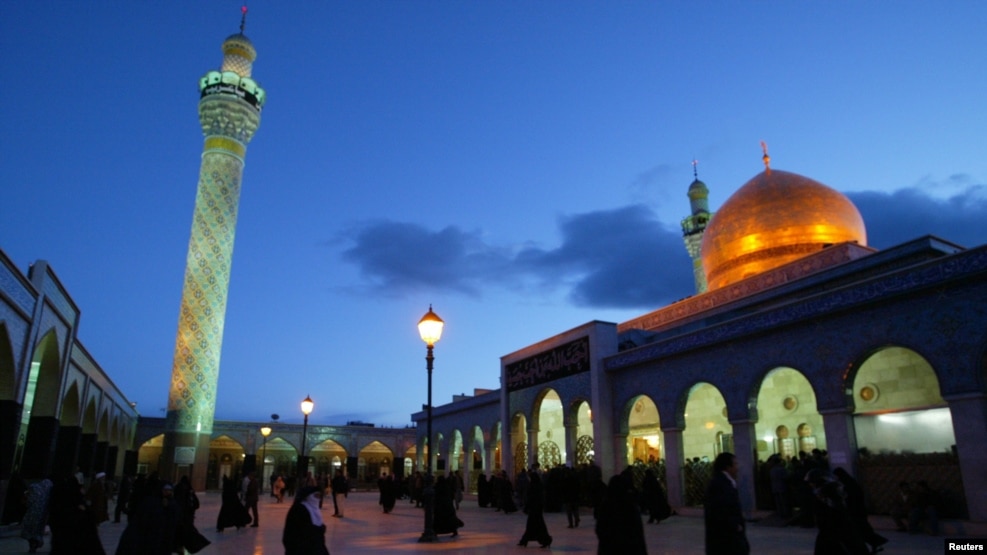
The newly-released book, titled “Angels of Shrine,” is aimed for children as young as 5-years-old and teaches them about “Shrine Defenders,” a term Tehran uses for its fighters stationed in Syria.
Tehran says it is in Syria to protect the Zeinab Shrine in Damascus, a Shi'ite holy site. Since 2011, Iran has been a major backer of the Syrian regime in its war with rebel groups across the country, at first sending advisers, then forces from the elite Iranian Revolutionary Guard Corps (IRGC).
The Persian-language book includes paintings and text describing battles Iranian forces fought in Syria. The book is written in the form of bedtime poetry and its 42 pages depict illustrations of the war in Syria, fighters defending a shrine and glorifies religious figures sacred to Shi'ites.
“This children’s book came about after a lot of brainstorming by cultural activists in Iran,” Ali Pourtaghi, the book’s publisher, said in a telephone interview with VOA.
The goal was "to prepare effective and emotional sustenance…for families and children who have lost fathers or brothers in this war [in Syria],” Pourtaghi said from Tehran.
Pourtaghi said the book, published in late December, is an independent venture by what he calls the "Shrine Defenders’ Retainers Group." The scenes in the book are decidedly pro-regime and the book is being promoted on social media by IRGC leader Qasim Soleimani — a key military commander.
Since the beginning of Syria’s civil war in 2011, Iranian government has often glorified its military involvement as a religious duty. IRGC fighters — along with pro-Iranian Shiite militias — have been vital in retaking many parts of Syria, including Aleppo, from rebel forces, according to the Syrian government.
The release of the children’s book comes as the Iranian government in recent months has been much more public about its military losses in Syria, saying that more than 1,000 soldiers deployed by Iran have been killed since 2012.
State-run television released a propaganda video last year that encouraged young people to join Iranian forces in Syria. The video showed children taking up arms and singing a song about "martyrs who defend the sacred shrines."
In September 2016, the Iranian city of Mashhad hosted a "War Theme Park" that was designed for teaching children war tactics and the use of weapons.
Rights groups in Iran have criticized the government, saying the outreach along with the children’s book is “an exploitation of children’s emotions.”
"We can’t teach children with whatever we want without measuring their consequences in the future," said Hiwa Ahmadi, a Tehran-based children rights activist.
Activists also say that indoctrinating young children with scenes of military activities and war propaganda could produce a new generation of Iranians taken by extremism and violence.
"Exposing children to war, and simplifying war causalities, which seems to be the main aim of this book, makes children more inclined to display violence and is very harmful to their future," said Kaveh Taheri, a Turkey-based Iranian human rights activist and journalist.
But pro-government experts in Tehran argue that instructing young people about the sacrifice of Iranians fighters is noble.
“Cinderella and Sleeping Beauty [stories] are needed for children, but they have to gather knowledge about their own culture and society too,” said Abbasali Salehi, a sociology professor in Tehran who has read the recently-published book.
Salehi said that he doesn’t "oppose publishing children books about war and its consequences [since] many Western societies have children books on military history."






































No comments:
Post a Comment